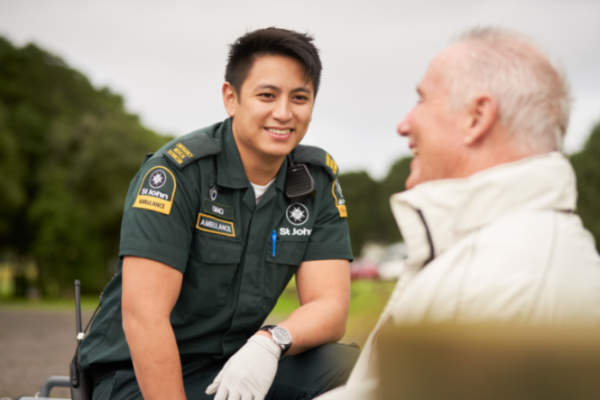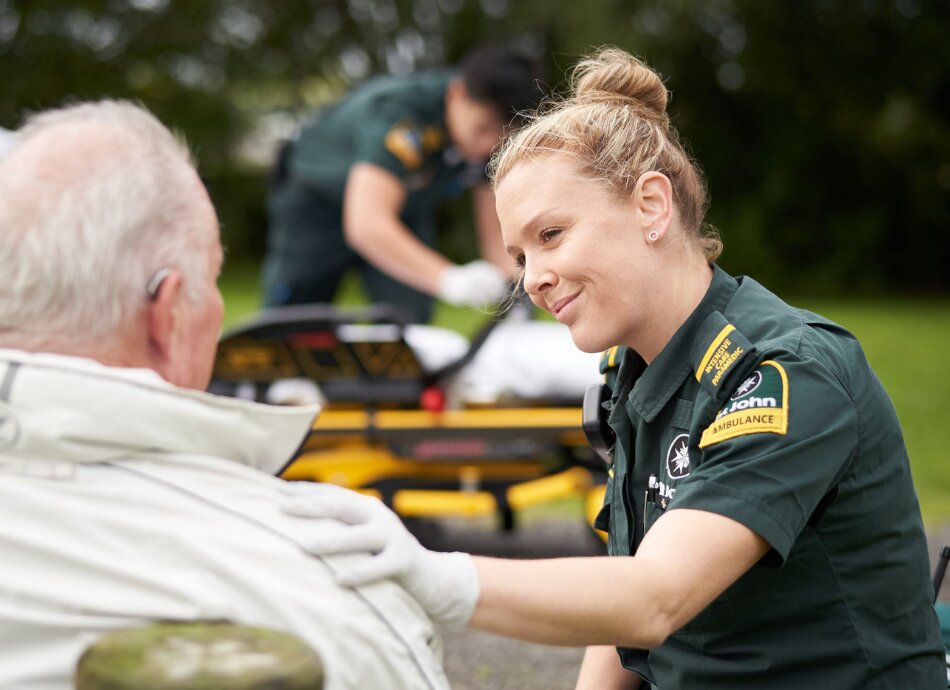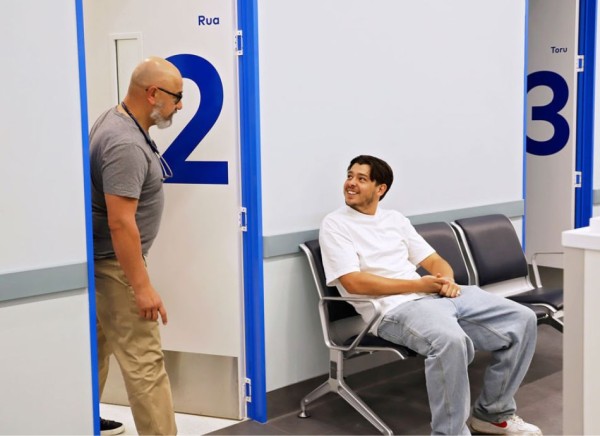A paramedic is a registered health professional who provides healthcare services mainly in urgent or emergency care situations. They assess, diagnose and treat patients in these settings, and can also provide clinical advice, referral and, where required, transport.
Paramedics are required to have a practicing certificate and have completed a Bachelor of Health Science in Paramedicine from Auckland University of Technology or Whitireia New Zealand.
Paramedics are most commonly thought of in connection with ambulance services, but they’re increasingly being employed within GP practices.

Image credit: Hato Hone St John, NZ







